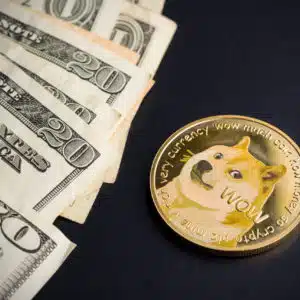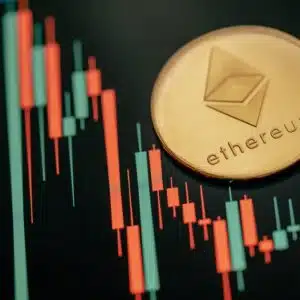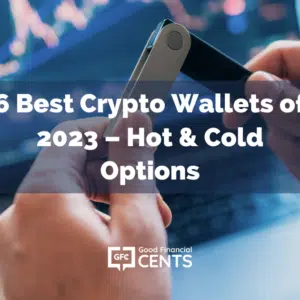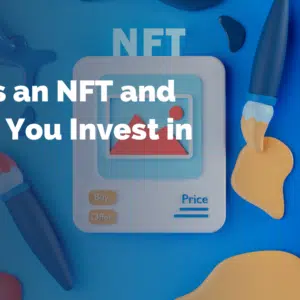If you’re someone who keeps an eye on the regular news, you have probably noticed some pretty crazy headlines regarding something called an “NFT.”
For example, there was this article from CNBC with the headline, “Meet the 12-year-old coder set to earn over $400,000 selling NFTs,” which explained the tween’s process for buying and selling digital artwork consisting of “weird whales.”
Then there was this article in Fortune, which describes a teenager who has built an NFT empire that’s reportedly worth $26 million dollars.
All of this sounds crazy for sure, but that’s especially true if you don’t even know what an NFT is. Clearly, NFTs are some sort of asset that can be bought and sold online, but how do NFTs actually work? More importantly, how do you make money?
Finally, how are kids as young as 12 cashing in on something the regular world barely even knows about?
While I am personally very into crypto investing and everything that goes on in the crypto space, NFTs or Non-Fungible Tokens are a type of asset that I don’t have a lot of experience with.
With that in mind, I decided to interview an NFT expert — Robert Farrington — to learn more about NFTs and how they work.
Farrington is not only the owner of the popular website The College Investor, but he also has a separate site called Cult of Money that’s all about cryptocurrency and NFTs.
If you’re eager to learn what an NFT is, how this type of asset works, and how to get started investing, you’re definitely in the right place. As a side note, you can also listen to my podcast interview with Robert using the link below.
Table of Contents
What Is an NFT?
Before we dive into how to invest in NFTs for a profit, it’s crucial for readers to understand what they really are. According to Farrington, NFTs are a lot more than a .jpeg photo, which is what some people tend to believe they are.
For the most part, Farrington says that non-fungible tokens (NFTs) are blockchain-based digital representations of a smart contract. However, NFTs can truly be anything, from a collectible to a piece of digital art. An NFT could even be a pass that lets you access a specific community, like a ticket.
At the same time, NFTs are also used for play-to-earn gaming, which is a type of online gaming that lets participants earn crypto based on the time they put in. According to Farrington, NFTs have even been sold at Sotheby’s just like mainstream art.
Top Shots from the NBA are another type of NFT that I am personally acquainted with. For example, you can buy an NBA Top Shot NFT that includes a digital video of LeBron James dunking the ball. In some cases, only 25 or 50 copies of each NFT are released, so the NFT you buy is almost like a piece of art.
According to Farrington, these are collectibles that people have been buying since the beginning of time.
“There’s so much out there, and people have always loved collecting things that are unique and rare,” he says. “This just happens to be the digital format of it.”
Beyond thinking of NFTs as art, he also notes that non-fungible tokens are very good at showing ownership and provenance. You may have heard of provenance in the context of traditional art.
If not, then “provenance” is a term used to describe the ownership history of a piece of artwork that shows its authenticity.
Other Ways NFTs Are Used
As I mentioned already, NFTs can also be marketed as passes to a specific event. As an example, Gary Vaynerchuk recently sold around 10,000 tickets to a conference he is offering for the next three years. These are the only tickets he will sell to the conference, so they have the potential to go up in value.
What’s interesting here is how content creators are able to benefit from selling tickets as an NFT instead of through traditional means. With an NFT, the content creator is able to include royalties back to themselves in the digital contract.
This means that when an NFT is sold later on the aftermarket, the original creator receives royalties from that sale.
Farrington says that, in this case, Vaynerchuk is actually making a 5% cut of every future sale. So, if he sells 10,000 tickets to the conference and 30% of them go on the resale market, he makes 5% of the 30% of tickets sold.
Since there won’t be any more tickets sold to these events, and since the purchase price has the potential to go up in value, Vaynerchuk gets to capitalize on the growing value of each NFT along with the person who sells them.

The same can apply to season tickets to sports games, which could easily be sold as NFTs in the future. If you sell your season tickets to a friend, nobody gets a cut. However, season tickets sold as NFTs would include royalties back to the owner of the team.
In summary, NFTs can come in myriad different forms, some of which have more utility than others. But that’s part of the reason why they’re growing in popularity. NFTs are interesting and unique, and the ways they can be used are only going to increase over time.
Where Do You Buy NFTs?
If you’re interested in NFTs, your next question is probably going to be where you can find them. I remember I had this same question when I first started investing in cryptocurrency. I had all these regular brokerage accounts, but none of them were actually offering crypto at the time.
Just like with crypto, it takes a certain amount of upfront work to find out where to invest in NFTs and then to move the cash you need for your investment to the platform.
“It’s definitely a process, and it all starts on where you own your crypto,” says Robert.
The whole premise of crypto is that it’s decentralized, and it has ownership, he says. However, platforms like Coinbase are holding your crypto for you.
“You have ownership of it because it’s in your name, but you don’t have true ownership of it yet. They’re acting as your custodian and holding your private keys.”
As a result, you have to move your crypto to a hardware wallet if you want to invest in NFTs. On a personal level, Farrington says he uses a Ledger hardware wallet and a platform called Metamask.
This combination of products lets him hold the actual keys to his crypto, which is what it takes to be able to invest in NFTs. Not only that, but Farrington says this step is what prevents people from getting hacked and watching their crypto assets disappear overnight.
Hacking is a major concern when it comes to crypto, so that’s one thing to keep in mind as you break into this space and begin learning more about NFTs. The fact is, there are all kinds of crypto scams to watch out for, and new scams surrounding NFTs are popping up all the time.
Farrington says that losing your crypto can take place in two different ways.
First, platforms like Coinbase can lock your account, and there’s really nothing you can do about it.
Second, hackers use some pretty complex methods to hack into cryptocurrency exchanges like Coinbase with the goal of wiping out your account. And when that happens, there’s really no recourse since crypto accounts don’t come with the same consumer protections as regular bank accounts do.
Farrington says that, for these reasons and others, he recommends that anyone with more than $1,000 in crypto should get a hardware wallet and Metamask for storage.
“As you do more and more in the digital space, that wallet with Metamask is going to enable you to buy your own NFTs and own the keys to your own crypto,” he says.
Once you have your crypto keys and your account is secure, you can buy NFTs at places like OpenSea and Rarible.
“These are basically like the eBay of NFTs,” says Farrington. In fact, just like eBay, you’ll find some NFTs that have a “buy now” option and others being sold via auction.
The Popularity of NFTs Explained
At the moment, the top NFT is the CryptoPunks collection, which you can browse on OpenSea. Next Up is the Bored Ape Yacht Club.
In both collections, the NFTs just look like a bunch of weird digital photos of people and actual apes. Yes, I said apes!
I asked Farrington if he could explain why anyone would fork over thousands of dollars worth of crypto for what amounts to a digital photo anyone could screenshot if they wanted to.
According to Robert, some of the most popular NFT collections are built around a community, so you’re buying into a community of 10,000 like-minded individuals who might be doing things you’re interested in.
The NFT you buy is a digital representation of that, and some of these NFT groups have in-person meet-ups and other ways they add value.
“You’re buying a membership in the club,” he says.
There are also ways NFT collections work within the traditional world of marketing to grow in popularity. For example, Bored Ape Yacht Club recently announced a collaboration with Adidas.
“The most valuable collections are driven by really strong communities that are very tech-focused,” he said.
And if you truly want to understand the value of some NFTs, you can do so by thinking of them as valuable baseball cards. For one person, a rare and valuable baseball card is a collectible that features their favorite athlete.
To others, though, the same baseball card is an old piece of cardboard they couldn’t care less about.
Farrington is pretty open about the NFTs he owns, which include assets from the Royal Society of Players (a poker-based NFT community), Axie Infinity (a play-to-earn gaming platform that lets participants earn crypto), and Carl Richards of Behavior Gap, who also writes for the New York Times.
Based on Farrington’s NFT assets, it appears his strategy mostly involves investing in his areas of interest and things he loves. That’s definitely one way to invest in NFTs.
“If you support the artist and the art, you can invest in NFTs that way,” he says.
The Takeaway
I asked Farrington if he had any final thoughts for people who are “crypto curious” and ready to invest in NFTs. For the most part, he says you really have to start investing to learn more about how it all works.
“You just have to do it,” he says. “There’s no easy way around it.”
You can start the process by looking around at NFT options on platforms like OpenSea and Rarible. From there, you can start comparing projects and learning why they came to fruition in the first place.
“Once you do, you’ll really start opening your eyes to what I’m talking about with the community,” says Farrington.
You’ll also realize that NFTs are a lot more than a .jpeg. Some experts say NFTs are the future of art as we know it.








Leave a Reply